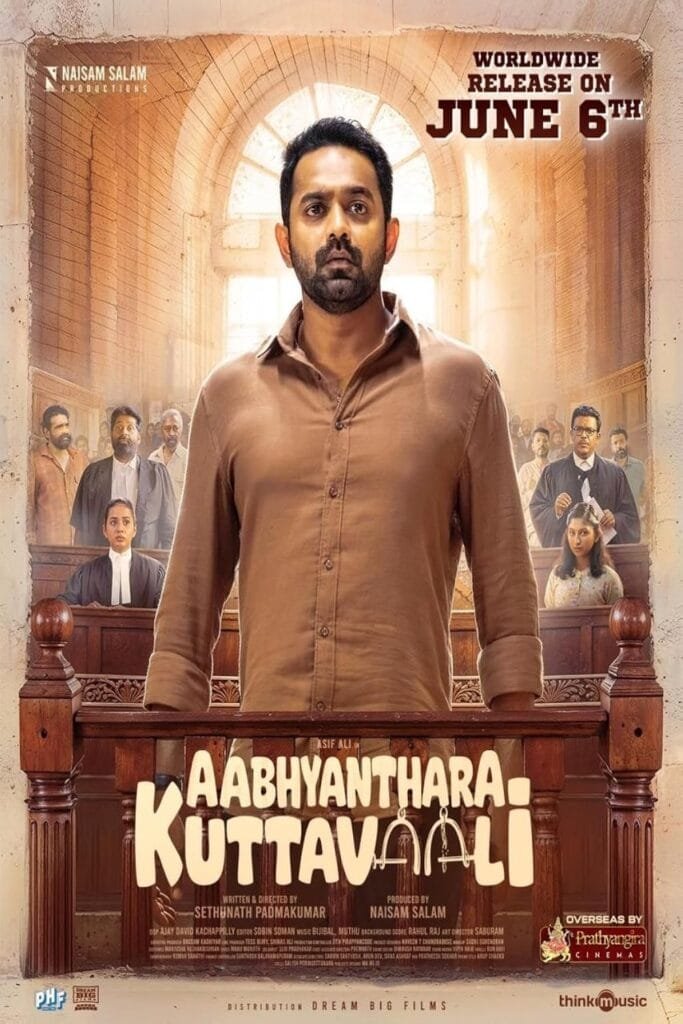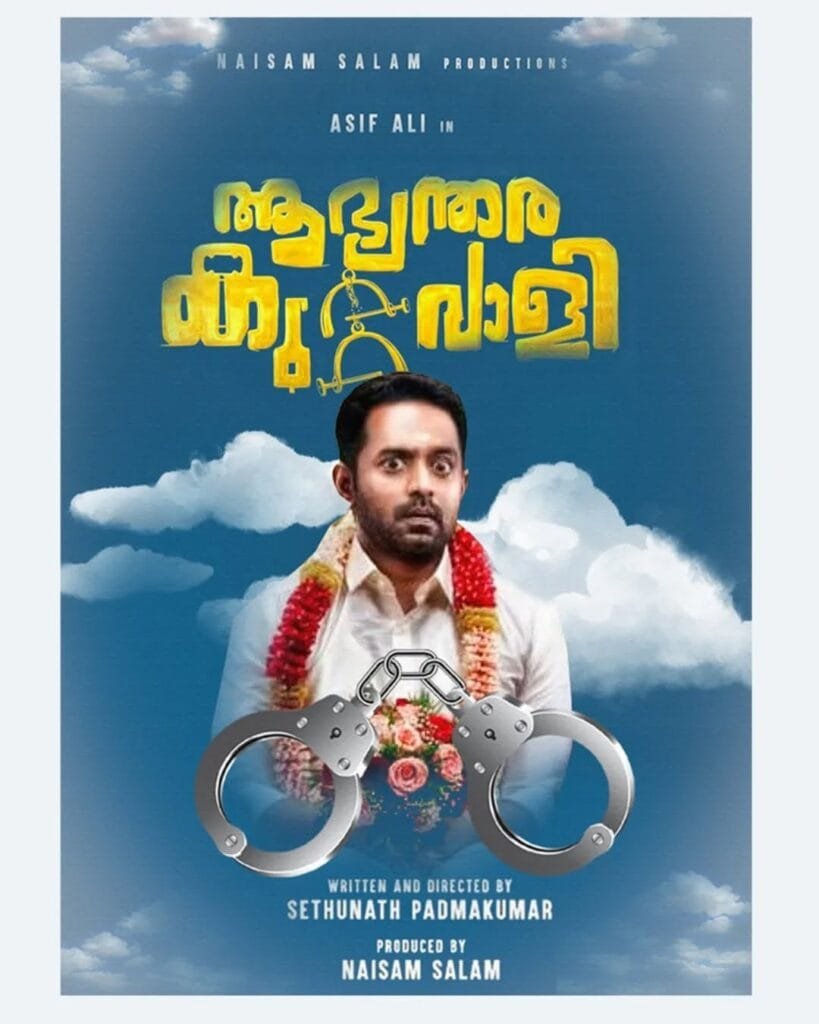Sethunath Padmakumar’s “Aabhyantharakuttavali” presents itself as an exploration of marital disputes, specifically focusing on the alleged misuse of Section 498A of the Indian Penal Code. While the film aims to provoke discussion on this controversial issue, its approach leans heavily towards one perspective, resulting in a narrative that feels more like an advocacy piece than a balanced examination. The story revolves around Sahadevan (played by Asif Ali), a man accused of dowry-related harassment and domestic violence. The film is primarily framed from his point of view, portraying him as a victim of systemic biases against men. By adopting this perspective, it aligns itself with a broader trend in cinema that highlights men’s rights, often at the expense of a more nuanced portrayal of gender dynamics. Instead of fostering a comprehensive discussion, it largely presents a singular viewpoint.

Direction
Padmakumar’s direction makes his stance on the subject unambiguously clear. Scenes such as Sahadevan returning the dowry gold are sentimentally framed, reinforcing his supposed victimhood—despite earlier moments indicating that he had refused to financially support his wife’s education with the same funds. The film generalizes individual incidents to construct a broader argument, often lacking subtlety. This is further emphasized through directorial choices like breaking the fourth wall, where Sahadevan delivers extended monologues in court. These sequences, designed to hammer home the film’s message, feel didactic rather than organically woven into the storytelling. The cinematic execution, at times, resembles that of a soap opera, reducing its dramatic depth.

Performances
Asif Ali brings emotional weight to the role, particularly in scenes that demand restraint. While his performance has strong moments, the script’s reliance on exposition-heavy dialogue limits his ability to convey emotions naturally. Harisree Ashokan, in a supporting role, leaves a lasting impression despite limited screen time. Meanwhile, Azees Nedumangad and Anand Manmadhan attempt to inject humor, though the effectiveness of their comedic elements is inconsistent. Unfortunately, Thulasi, portraying Nayana, struggles to deliver a layered performance, with her expressions often coming across as exaggerated. The female characters, overall, lack depth and agency, serving primarily as narrative devices rather than fully realized individuals.

Music and Technical Aspects
One of the film’s stronger elements is Rahul Raj’s background score, which adds emotional layers to key moments. The music helps prevent the film from becoming entirely didactic, occasionally grounding its dramatic intensity. Despite this, the overall technical execution leans towards a melodramatic tone, diminishing the film’s ability to engage audiences with an objective discourse.
Song Link: https://www.youtube.com/watch?v=R9IjXgK9_zA
Overall
While “Aabhyantharakuttavali” raises an important discussion about legal loopholes, it does so in a way that feels imbalanced. By amplifying one perspective and vilifying its female characters, it misses the opportunity to craft a truly insightful narrative. Despite Asif Ali’s commendable effort and a compelling score by Rahul Raj, the film’s heavy-handed messaging and lack of nuance make it difficult to appreciate as an unbiased cinematic exploration. Those looking for a thoughtful, multi-dimensional portrayal of gender and legal complexities may find this film frustrating rather than enlightening.
Trailer Link: https://www.youtube.com/watch?v=ZWQ7ygtj2oI
